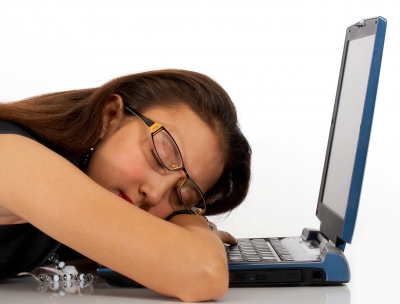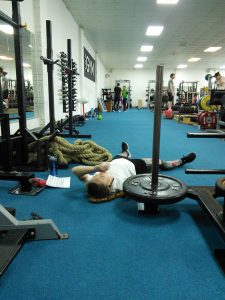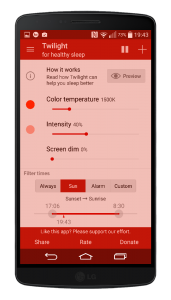
The importance of sleep is currently a bit of a trendy topic in the fitness world and rightly so. Sleep, or rather a lack of it can be responsible for increased stress and depression, reduced performance and energy, decreased appetite, fat gain, muscle loss, increased chance of illness and the list goes on. So you can see why sleep is so important.
“Sleep is that golden chain that ties health and our bodies together” Thomas Dekker
It is all to do with the way sleep affects hormones. Basically getting less than the optimal amount of shut eye (7-9 hours for most people) reduces insulin sensitivity, reduces testosterone production, increase cortisol and lessens the melatonin and serotonin. What does this mean?
- Insulin and glucose tolerance lessens and this can affect not only fat gain but can lead to insulin resistance which in turn can lead to diabetes.
- Cortisol (the stress hormone) levels are normally low at night and rise in the morning providing adequate sleep is achieved. This is used to help wake the body. However, when you get less than required then the day time levels are low and the body tries to normalise this by increasing them in the evening. This means that sleep is disrupted and testosterone production is much lower (as both hormones are made from pregnenolone).
- Normal testosterone levels are needed for muscle maintenance, fat loss and sports performance.
- Lower serotonin and melatonin levels affect all other hormones as melatonin restores the central nervous system and starts other hormones release based on circadian rhythms. Serotonin, also known as the ‘feel good hormone’ is directly linked to the the circadian rhythm or body clock.
There is a great article that covers many more benefits on the Sleep Judge website here.
 The good news is that most of these levels can be normalised by catching up on missed sleep. Getting enough shut eye is also vital for general health as studies have shown that a lack of rest is linked to a lower immune system and an increased risk of viral and bacterial infection as well as heart disease.
The good news is that most of these levels can be normalised by catching up on missed sleep. Getting enough shut eye is also vital for general health as studies have shown that a lack of rest is linked to a lower immune system and an increased risk of viral and bacterial infection as well as heart disease.
Fat loss goals can be affected as appetite regulation is disrupted and a calorie increase is likely when not enough sleep is achieved. Also, sports performance can suffer if the neurotransmitters are not replenished, meaning the central nervous system doesn’t recover as well, leading to loss of reaction time, energy and endurance. Not to mention the already stated drop in testosterone.
So, what can you do? Here are some strategies to help you get some shut eye.
- Go to bed half an hour earlier every night until you are getting at least 7 hours of zzzzz. Every hour you go to bed before 12am is worth 2 after.
- Don’t eat 2 hours before going to bed, and this last meal should be a small, balanced, unprocessed meal. You don’t want to be digesting when you should be sleeping!
- Do something that relaxes you; stretch, read, sex, relax…
- Create a dark, relaxing room. Remove all light sources like clock radios
- Don’t use technology at least an hour before bed that emits blue light, like laptops, mobile phones, tv’s etc. They disrupt the melatonin cycle. If you still want to use them install a blue light reducing app (details below).
- If you are stressed or anxious try writing down what you did today and what you will do tomorrow.
- Sleep naked. This keeps your body cooler, which reduces cortisol and thus increases growth hormone, testosterone and melatonin
- Avoid caffeine after 3pm as it can disrupt the sleep cycle. Alcohol also disrupts your rest so don’t think that having a drink will help you nod off.
- Try to wake with natural light and once you are awake get moving. Don’t hit snooze, get up straight away
 So, as mentioned the blue light from mobile phones and other screens cause a disruption to hormones as they mimic sunlight. Fortunately there is an app for that. On your computer try installing FLUX or on an android device TWIGHLIGHT. These run in the background and apply a colour filter when the sun goes down. On Apple devices there is no such app but you can adjust your settings to do a similar thing:
So, as mentioned the blue light from mobile phones and other screens cause a disruption to hormones as they mimic sunlight. Fortunately there is an app for that. On your computer try installing FLUX or on an android device TWIGHLIGHT. These run in the background and apply a colour filter when the sun goes down. On Apple devices there is no such app but you can adjust your settings to do a similar thing:
Open the Settings
Go to General -> Accessibility -> Zoom
Turn on Zoom
Quickly tap three times, with three fingers, anywhere on the iPhone, iPod Touch, or iPad screen
Tap on Choose Filter
Select Low Light
So, there it is. Sleep is important. It’s important for athletes to recover from training. It’s important for everyone to recover from life. You need 7-9 hours regularly to have a healthy hormone balance and good immune system. Try putting some of these tips to use, you’ll be surprised at the difference they make.
References
http://ericcressey.com/sleep-what-the-research-actually-says
http://www.precisionnutrition.com/power-of-sleep-infographic
http://www.strengthsensei.com/sleep-your-way-lean/
http://www.strengthsensei.com/4-reasons-why-sleeping-naked-makes-you-leaner-faster/
http://www.strengthsensei.com/insulin-sensitivity-and-sleep-or-lack-thereof/
http://www.imore.com/dim-your-screen-further-control-center-allows-and-other-cool-ios-8-tricks
https://www.thesleepjudge.com/health-benefits-of-sleeping/
Chaput, J., et al. Sleeping Habits Predict the Magnitude of fat Loss in Adults Exposed to Moderate Calorie Restriction. Obesity Facts. 2012. 5(4), 561-566.
Broussard JL, et al. Impaired insulin signaling in human adipocytes after experimental sleep restriction: a randomized, crossover study. Ann Intern Med. (2012)
Donga E, et al. A single night of partial sleep deprivation induces insulin resistance in multiple metabolic pathways in healthy subjects. J Clin Endocrinol Metab. (2010)
Buxton OM, et al. Sleep restriction for 1 week reduces insulin sensitivity in healthy men. Diabetes. (2010)
Reynolds AC, et al. Impact of five nights of sleep restriction on glucose metabolism, leptin and testosterone in young adult men. PLoS One. (2012)
Robertson MD, et al. Effects of three weeks of mild sleep restriction implemented in the home environment on multiple metabolic and endocrine markers in healthy young men. Metabolism. (2013)
Luboshitzky R, Shen-Orr Z, Herer P. Middle-aged men secrete less testosterone at night than young healthy men. J Clin Endocrinol Metab. (2003)
Penev PD. Association between sleep and morning testosterone levels in older men. Sleep. (2007)
Leproult R, Van Cauter E. Effect of 1 week of sleep restriction on testosterone levels in young healthy men. JAMA. (2011)
Cortes-Gallegos V, et al. Sleep deprivation reduces circulating androgens in healthy men. Arch Androl. (1983)
Cote KA, et al. Sleep deprivation lowers reactive aggression and testosterone in men. Biol Psychol. (2013)
Gonzalez-Santos MR, et al. Sleep deprivation and adaptive hormonal responses of healthy men. Arch Androl. (1989)
